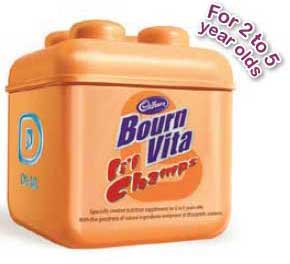Learn how
Docosahexaenoic acid
or DHA aids in baby's
mental growth as well
as visual acuity...
We all recognize the importance of vitamins, calcium, iron and minerals in our physical and mental development. From a tender age on, these are included in our diet. Carrots, which contain Vitamin A, are consumed for the healthy functioning of the retina. Spinach is prized as a rich source of iron for production of haemoglobin. However, the equally important omega fatty acid DHA required for the brain and retinal development in the eye of the baby is ignored in our regular vegetarian diet.
NUTRIENTS
BENEFITS
SOURCES
Iron
Helps in formation of haemoglobin, carries oxygen from the lungs to the muscles and other organs, increase energy.
Meat, broccoli and spinach, almonds, chick-peas and lentils, wholemeal bread, brown rice breakfast cereals, dried fruit and eggs.
Calcium
Strengthens bones, protects heart, maintains healthy teeth.
Yogurt, cow's milk, soymilk, sesame seeds, collard greens, tofu, sardines, white beans, bok choy, Parmesan cheese, dried figs and broccoli
Fiber
Promotes regularity and prevents constipation, helps reduce risk of cancer and heart disease later in life.
Whole grain breakfast cereals, whole grain bread, fruit, vegetables, cooked beans, peas and lentils.
Potassium
Increases muscular strength, assists in metabolism, keeps heart, brain, kidney and muscle tissue in good condition, maintains water balance in the body
Bananas, orange, watermelon, runes, raisins avocado, bran cereal, wheatflakes cereal, yogurt, milk, sunflower seeds, meat and fish.
Vitamin A
Helps in the growth of bones and tissues, develops immunity against diseases.
Yellow or orange coloured fruits and vegetables like carrots, papaya, mangoes, beetroot, sweet potato, spinach, red and green bell peppers, apricot, tomato, orange, broccoli, egg yolk, milk.
Vitamin C
Helps to form collagen, a tissue that helps to hold cells together, develops healthy bones, teeth, gums and blood vessels, helps the body absorb iron and calcium.
Oranges, limes, lemons and grapefruit, strawberries, tomatoes, green pepper, broccoli, cabbage and potatoes.
DHA
Maintains strong and healthy cell membranes, helps in the development and function of the brain, eyes, and central nervous system.
Breastmilk, oily fatty fish, algae, nutritional supplements in milk.
WHERE DOES DHA COME FROM?
Our daily diet lacks DHA. Breastmilk is the ideal source of DHA, which develops the memory, perception power, concentration and logical skills of children. Children who are given DHA show a significant difference in skills, such as reading, recognition and describing things.
However children are breastfed only up to a certain age and once the child is weaned, his source of DHA is depleted. DHA cannot be manufactured in the body and has to be obtained daily through diet. Other alternate
Our daily diet lacks DHA. Breastmilk is the ideal source of DHA, which develops the memory, perception power, concentration and logical skills of children. Children who are given DHA show a significant difference in skills, such as reading, recognition and describing things.
However children are breastfed only up to a certain age and once the child is weaned, his source of DHA is depleted. DHA cannot be manufactured in the body and has to be obtained daily through diet. Other alternate
sources of this essential nutrient comes from a non-vegetarian diet, mainly fish and algae. So for most of us, DHA has to be supplemented separately. That's where nutritional supplements in milk (such as Cadbury Bournvita Li'l Champs) come in to the picture. They provide added nutrition that has been especially formulated for toddlers aged between two to five years, because that's when almost 90 per cent of your child's brain development takes place. Studies prove that optimum dosage of DHA has a positive effect on the IQ and cognitive behaviour of children.

Baby - Baby Photo Contest | Lucky Names | Lucky Birthdates | Horoscopes | Chinese Calendar | Compatibility Test | Fun Zone
Parenting - Message Boards | Planning a Baby | Pregnancy | Parents of Babies | Baby Names | Baby Name Poll | Birth Announcements | Parenting Quiz
Family - Cooking Club | Love & Relationships | Beauty Tips | Kids Weight Calculator | Recipe Maker
General - Calorie Counter | Personality Quiz | Love Signs | Compatibility Quiz
Copyright © 1999 - 2025 India Parenting Pvt. Ltd.




